Holistic Financial Advice
Whether you have a clear vision for your financial future, or need help understanding what you truly want, we will guide you in the right direction.
Superannuation
Superannuation is one of the major factors that determine your lifestyle once you retire. Ensuring your superannuation strategy is aligned with your long-term financial goals is essential for achieving the lifestyle you desire.

Investment
An effective investment strategy can be the difference between unlocking true financial freedom and not achieving your financial goals. Due to the sheer variety of investment opportunities, coupled with the near-infinite risk appetites and capital and income statuses of individuals, sound investment planning is essential.

Debt management
The purchase of your home will often be the biggest financial commitment you make. Proactively managing this debt will enable you to repay your loan sooner, and help you be debt free in time for retirement.
Cashflow management
Understanding how much your current lifestyle is costing you is often the first step in creating a holistic financial plan for the future. Taking control of your cashflow will empower you to realise your financial goals.
Retirement planning
We all strive to reach a comfortable retirement, living the lifestyle we deserve after a lifetime of work. However, reaching your ideal retirement lifestyle requires thorough planning and an effective strategy.

Personal Insurance advice
Planning for life-changing and tragic events is central to ensuring your family is taken care of, in the event that you or your partner suddenly pass away or is no longer able to work. If you have debts or dependents, your financial preparedness is essential.

Estate planning
A well-considered estate planning strategy will give you peace of mind, knowing your wishes will be honoured, and the right people will benefit from your legacy. We can help manage the process of your estate planning.
Superannuation advice
For most Australians, superannuation will be the most significant retirement asset throughout their lifetime.
Just as you go through different life stages, so too should your superannuation. We can help you consider whether your existing superannuation strategy suits your long-term goals or if there are better alternatives, while considering:
- What retirement looks like for you:
- When you would like to retire
- Your ideal income in retirement, and
- How much you will need to accumulate to fund this.
- Your investment options and whether they suit you in your current life stage
- How to create a contribution strategy, considering your tax position, to achieve your retirement goals.
- Consider if the fees and charges you’re paying are appropriate for the product you’re using.
Employees have the benefit of the mandatory superannuation contributions (scheduled to increase over the coming years to 12%) but studies show that for many people currently working this will be insufficient on its own for a comfortable retirement.
You can do your bit to grow your super while you’re still working with several tax effective strategies:
- Salary sacrifice
- Make after tax super contributions
- Government co-contribution
- Contribution splitting
- Personal deductible contributions
- Spouse contributions
If you are self-employed, there are additional options to help minimise your tax while catching up on retirement savings that might have been neglected while working in your business.
Investment advice
Investment planning focuses on identifying tax effective investment strategies that can complement your long-term goals.
If you have surplus income, have received an inheritance, sold a property, or just aren’t wanting to rely solely on superannuation to fund your retirement, we can help you navigate the investment universe and develop a strategy to secure your financial future.
There is an immense range of investment options available in the marketplace, each with different tax structures, risks, and capital/income return profiles. We can help you identify which investment types may suit your personal goals, working as part of a holistic financial plan, ensuring that any action taken is in your best interests.
Debt management
The single largest financial investment most people will make is in the purchase of their family home, sometimes borrowing up to 95% of the value of their home and agreeing to pay this off over 25-30 years.
Banks are eager to lend you money but less eager to show you ways to repay your loan quickly. Without being active in managing your debt, you could end up taking much longer than necessary to pay off your loans.
For example, if you borrow $500,000 over a 30-year loan term you would end up paying $287,328^ of interest over the life of the loan if you only made the minimum repayments required.
Holistic advice looks not only at how much is required to repay your debts in time for retirement (or other goals) but also how best to structure the loans such as:
- Fixed vs variable rate loans (or a combination of both)
- Refinancing opportunities to find lower interest rates
- The use of surplus cashflow for debt repayment vs investing
An appropriate debt repayment strategy would consider ways to speed up the rate of your repayments. This allows you to be debt free as soon as possible and gives you the confidence that you’re doing everything you can to maximise the impact of your repayments.
^$500,000, 30-year loan, minimum P&I repayments, interest rate of 3.29%pa, per Westpac.com.au home loan repayment calculator.
Cashflow management
Most people do not have a regular budget or keep track of their spending, so they never feel truly in control of their finances. Taking control of your cashflow is the first step to securing your financial future.
Cashflow management is the most important part of planning for the future because everything you do now, or want to do in the future, depends on the amount of income you’re receiving. Getting to grips initially with where you are allocating your income helps to identify areas for improvement or opportunity.
Understanding what your current lifestyle is costing you can be helpful in working out the kind of income you’d like to have in retirement. This is often the starting point for a holistic financial plan as it helps to quantify what your money gets you and how that translates to the lifestyle you want to maintain in retirement.
Cashflow management advice can sometimes be as simple as taking money away from yourself before you have a chance to spend it, which can be as easy as:
- Directing your employer to pay a portion of your salary into a separate bank account such as:
-
- A home loan
- Separate savings account (emergency funds, holidays, house deposit etc)
- Setting up an automatic contribution to your super fund through a salary sacrifice arrangement or as an after-tax contribution
- Starting an investment account that you contribute to on a regular basis (weekly, fortnightly, monthly)
As part of the holistic advice process, we use an initial cashflow analysis to identify any areas that can be improved upon, to see if you have surplus income that can be deployed to more constructive areas and help to set goals based on what you can afford to do.
Retirement planning
Retirement is something to look forward to. However, preparing for retirement can be a daunting prospect and often gets left too late. We spend the best years of our life working but very few of those preparing for retirement; by working with a holistic financial adviser, you can take control and look confidently towards the future.
Understanding what your current lifestyle is costing you can be helpful in working out the kind of income you’d like to have in retirement. This is often the starting point for a holistic financial plan as it helps to quantify for the first time what your money gets you and how that translates to the lifestyle you want to maintain in retirement.
Combining the other components of holistic advice (cashflow/debt management, investment/superannuation advice, personal insurance advice, and estate planning) we have all the information at our disposal to make clear plans to achieve your retirement goals and review the role your assets will play in funding your income in retirement.
Working together, we consider how to maximise your savings and investments in the time you have before you retire and consider if your current investments are still suited to your risk tolerance, given your particular proximity to retirement.
Managing your exposure to investment risks as you get closer to retirement is an important part of retirement planning; the impact of a Global Financial Crisis at the wrong time can add years to your working life or take years off the longevity of your assets if you haven’t adjusted your investment strategy appropriately.
Retirement planning also includes an assessment of when/if/how much government assistance you might receive in retirement and looks at strategies that help to maximise any Centrelink Age Pension entitlement and how that can be used alongside your assets to give you the lifestyle you want in retirement.
Personal Insurance advice
Many people will have insurance for their car or home before they insure their biggest asset — themselves. If you have debts or dependants, it’s important to consider how financially prepared you are for life-changing tragic events, such as the unexpected death or illness of you or your partner. How would you or your family take care of bills such as your mortgage, or day-to-day expenses if you were unable to work?
Often referred to as our ‘Plan B,’ personal insurance is a key component of holistic financial advice, providing financial security in case our ‘Plan A’ is derailed due to illness, injury, or premature death.
By working with a holistic financial adviser, your Plan B is reviewed on a regular basis to ensure that you continue to hold appropriate cover for your needs as your circumstances change over time.
There are four key types of personal protection insurances for individuals and business owners, all of which can be required to provide the appropriate level of protection, but not all of which are required to be held forever:
- Life Insurance
- Total & Permanent Disability (TPD) Insurance
- Trauma (Critical Illness) Insurance
- Income Protection
As with debt management, it is important to regularly review the insurance cover you hold as premiums increase each year as you get older. To avoid paying for cover you don’t need, or to make strategic decisions to reduce cover to save on costs, we recommend a regular review of your personal insurance alongside your Plan A strategy.
Estate planning
An often overlooked and unloved area of client’s financial affairs is estate planning; not just what happens to our assets when we die, but what happens when we can’t make decisions for ourselves. Who do we put in charge? Who has your best interests at heart, and how can they legally make decisions for you?
As holistic financial advisers, we are not qualified to provide you with estate planning advice beyond general advice. We can, however, project manage the process with a trusted estate planning specialist.
A well-considered estate planning strategy will give you peace of mind that, in the event of your passing, the right people will benefit from your legacy, or in the event of your inability to act under your own power (for medical or other reasons) you can appoint ahead of time people you trust to a position of legal authority to manage your finances and/or medical care.
Estate planning ensures your financial assets will meet your family's needs at the right time, in the right way, and as tax-efficiently as possible.
You may assume that if you have a Will in place, its terms will be honoured when you pass away. Today, societal changes see new family models emerging and it is common for Wills to be contested by other people who believe they have a legitimate claim. Understanding what may happen is important when considering how to structure your estate or assets.
It’s essential that you make legally binding arrangements for the distribution of your wealth and assets. We will work with you, alongside an estate planning specialist, to ensure this key piece of your holistic financial plan is addressed.
